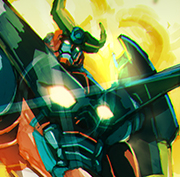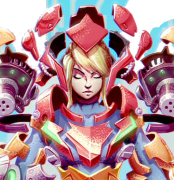|
spectralent posted:Wrong fun is posting on a dead comedy forum about whether or not failing to achieve an objective counts as having objectively failed imho That's just like, your opinion, maaaaaan.
|
|
|
|

|
| # ? May 23, 2024 11:39 |
|
AlphaDog posted:That's just like, your opinion, maaaaaan. spectralent posted:Wrong fun is posting on a dead comedy forum about whether or not failing to achieve an objective counts as having objectively failed imho
|
|
|
|
spectralent posted:Yeah, that was my impression watching it. The knight was benefitting a lot from not having to deal with crap wobbling around on him. Also I did notice he was wearing trainers and not mail boots, but presumably that's just because perfectly smooth beams which are fine with combat boots aren't a fair comparison to running on actual earth like a knight would. Modern trainers aren't too far off from 14th century shoes anyway. Historically the soles of the feet weren't usually armored, they were just mail or plate sabatons over leather boots. Even those were fairly rare and usually only seen on cavalry because hitting someone in the feet is a lot easier when those feet are in stirrups at your shoulder level.
|
|
|
|
spectralent posted:Fighters appear in the book, acting like they're a proper class, when they're at best training wheels for the concept of dungeon crawler RPGs. Because one of the genuine strengths of a class system is that you can design classes that are adapted to different levels of engagement with the game and the system, which is extremely handy if you have players whose levels of system investment range from "Wants to know every single rules nook and cranny" or "Will show up week-in, week-out, with a better recall of what went down earlier in the campaign than the GM has" on the one hand to "is new to this and doesn't want to be given too much game mechanical stuff" or "actively wants to be able to coast in terms of the system stuff because they're mostly here for the roleplay" on the other. That's not a reason for fighters to be quite as terrible as they currently are, of course, but it is a reason why you would include a "training wheels" class. You could even label it as such and say "Listen, game mechanically you will end up overshadowed by others in the long run, but you might consider it a worthwhile tradeoff if you'd genuinely prefer not to have to learn any magic rules, and if your campaign isn't going to go much beyond level X it won't get that bad". Alien Rope Burn posted:As for Vancian spellcasting and LFQW, they get blasted because the main intent they most often seem to fulfill is "make a game like D&D". And that's not to say they can't serve a design purpose - anything can if done within proper intent - but whether or not they properly serve the needs of conventional fantasy games has been in question for a long time now. I like to think we can do better than 1974's state of the art, ultimately. Nostalgia appeal is as valid a design purpose as any, and criticising Pathfinder for not cutting out major nostalgia factors in a new edition is like saying that the next time someone remasters the Yes back catalogue they should swap out all the Moogs and Mellotrons for modern synthesisers. Even if objectively speaking the modern synthesisers have vastly superior capabilities to the old ones, the limitations of the old ones gave them a distinct sound and feel all of their own and the difference when they are taken away is noticeable. spectralent posted:Yeah, but that's why they're lovely designers and pathfinder is bad. lovely designers if game design is a commercial exercise where the aim is to squeeze money out of an audience which has made its preferences extremely clear? No. Keeping the nostalgia factor going is a perfectly decision given the commercial position Paizo are in. Blue skies game design is what indie games and small presses are for. At the scale of Paizo you need to craft your product to fit the audience you intend to sell it to. You should not be shocked that the McDonald's and Burger Kings of game production are putting out fast food-grade games rather than refined repast.
|
|
|
|
And you shouldn't be shocked when a ton of people point out that McDonald's is poo poo food and we'd all be better off if we'd stop eating it. Also, goddamn I hope no one ever writes about my work the way you just wrote about Paizo's. That is about the nastiest thing I think you can say about a creative professional. I'm willing to take criticism, but I'd never want someone to say that I'm the McDonald's of my field. Jesus. counterspin fucked around with this message at 00:47 on Mar 11, 2018 |
|
|
|
Arguing forcefully from your own aesthetic preferences is perfectly fine (and I'd be a hypocrite if I said otherwise) but it isn't objective. The bigger problem is that, frequently, 3.5 doesn't actually do what it's designers or its fans say they want it to do or like that it does.
|
|
|
|
Warthur posted:Would it help if they were actively designated as training wheels and designed as such? Yeah, absolutely. quote:lovely designers if game design is an art-for-art's-sake blue skies research process where the aim is to push the boundaries of game mechanics ever forwards? Sure, absolutely. I'm not shocked they're doing it, it's just a lovely thing they're doing. I'm going to call Burger King and McDonalds lovely companies too, despite their obvious commercial success, for similar reasons.
|
|
|
|
No one complains about the power differential in Ars Magica because it's up front and taken into account in the broader design of the game. As much as people didn't like the late 4e stuff, I had seen in my groups that there were people who were never going to enjoy 4e at it's default fiddliness level, and I was glad to see it. People hate LFQW in D&D because it's a party game and there's a presumption of fairness. There's even this way to compare power across classes, called LEVELS. But it's a crock. And that's why people hate if. If you sold the fighter honestly no one would play it.
counterspin fucked around with this message at 00:51 on Mar 11, 2018 |
|
|
|
Warthur posted:Would it help if they were actively designated as training wheels and designed as such? Sure, but if you're going to have those new player / low engagement options, they should be very effective out of the box, with some optional flavor customisation that can't significantly raise or lower their effectiveness. Even if you made the differences in effectiveness/customisability/etc explicit, the choice would still amount to "a more complicated, more effective option" vs "a less complicated, less effective option", where really it should be "a more complicated, more customisable option that you might gently caress up" vs "a less complicated, less customisable option that you can't gently caress up". In other words, the reward for an experienced player choosing a more complicated class should be "I could tweak it so that it's exactly what I wanted, and it works effectively at a level of complexity I enjoy", not "is inherently both more complex and better than other options". Warthur posted:You should not be shocked that the McDonald's and Burger Kings of game production are putting out fast food-grade games rather than refined repast. You should not be shocked when Burger King and McDonald's products are described as lovely food regardless of their commercial success. e: There's no reason for the divide to be along magic/martial lines, either. There can be complicated-to-play warrior classes where you have to manage three different resource pools and command a squad, and also simple wizard classes that are excellent at shooting acid lightning. Elector_Nerdlingen fucked around with this message at 01:17 on Mar 11, 2018 |
|
|
|
counterspin posted:No one complains about the power differential in Ars Magica because it's up front and taken into account in the broader design of the game. As much as people didn't like the late 4e stuff, I had seen in my groups that there were people who were never going to enjoy 4e at it's default fiddliness level, and I was glad to see it. People hate LFQW in D&D because it's a party game and there's a presumption of fairness. There's even this way to compare power across classes, called LEVELS. But it's a crock. And that's why people hate if. If you sold the fighter honestly no one would play it. Maybe part of the solution is to do class tiers and give an XP chart to each tier - so it takes that much longer for the wizard to pull far ahead of the fighter. (Of course, that only delays the problem... but if the problem is delayed long enough that 99% of campaigns wrap up before it actually occurs then it's ceased to be a central problem and ends up an edge case.)
|
|
|
|
Warthur posted:Would it help if they were actively designated as training wheels and designed as such? there is literally no reason for the easier class to learn to be overshadowed by others in the long run! that's an awful tradeoff to ask new players to make Warthur posted:In earlier editions the XP charts were not unified across the classes - there the fair comparison isn't level-to-level but number of XP. In 2E at a million XP the thief is halfway through level 14, the cleric and wizard's partway through level 12, and the fighter's just hit level 12. (I think they've already received their very own army at that point - take that away and they ought to be further ahead in level terms.) this is a ridiculous idea, if you've managed to create a system where a level 12 wizard is on par with a level 14 thief just move the stuff the wizard gets to do at level 12 to level 14 or vice versa what both these posts have in common is that they're proposing patches that kind-of-but-not-really ameliorate game design mistakes, when it would be easier just to fix those mistakes
|
|
|
|
"This class is really easy to learn, but also deceptively functionally useless! At higher levels, it's so un-fun, that players will get more experienced and will naturally gravitate to the other classes!" is the least new player friendly idea I can conceive. It's like it's made specifically to give new players bad experiences so they never return.
|
|
|
|
You can tell a group roleplaying game is good when it gets people into arguments about the semantics of "objective" versus "subjective" rather than discussing how the mechanics of the game undermine its ability to be fun for the whole group.
Nuns with Guns fucked around with this message at 01:46 on Mar 11, 2018 |
|
|
|
Just add respecs, see, and then players can get out of crappy classes.
|
|
|
|
Nuns with Guns posted:You can tell a group roleplaying game is good when it gets people into arguments about the semantics of "objective" versus "subjective" rather than discussing how the mechanics of the game undermine its ability to be fun for the whole group. "Given that character level is an indicator of character effectiveness, if all classes are not at least roughly equal in effectiveness at any given level, then the game is poorly designed." "Actually, you can't actually know what "effectiveness", "poorly", "game", or "designed" actually mean."
|
|
|
|
someone who wanted a simple Fighter in 4e could have taken nothing but the "hit dude for damage" powers. That was an explicit goal of the design and a deliberate decision to include those powers.
|
|
|
|
I like the idea of having "simple" classes, but yeah there's no reason that the fighter should always be the simple one while the wizard is the complex one. Then again, it feels like a huge waste to design major mechanical subsystems and only allow one or two classes to engage with a quarter of the rulebook. Let me pitch something: maybe just make every class simple to start with? And then as you level up you can get some kind of advanced class that lets you select extra abilities, unlock some magic, or other powers? And then you hit a higher level and get to choose again? Oh, and drop like, the entire back 10 levels because that just draws poo poo out. We also need.... *peeks at another page of Shadow of the Demon Lord* a small but vicious canine.
|
|
|
|
gradenko_2000 posted:someone who wanted a simple Fighter in 4e could have taken nothing but the "hit dude for damage" powers. That was an explicit goal of the design and a deliberate decision to include those powers. And they'd still be a viable choice that contributes to every combat too.
|
|
|
|
Nuns with Guns posted:a small but vicious canine. Isn’t that WHFRP 3E?
|
|
|
|
It's one of the many call-backs to WHFRP in Shadow of the Demon Lord, and also a required element of play
|
|
|
|
Nuns with Guns posted:I like the idea of having "simple" classes I don't. My personal experience is that in general games that try to present asymmetric choices to players in the vein of "this option is real simple, while this one is more complex!" invariably gently caress it up somehow. I feel that games ought to establish a targeted baseline level of complexity/interactivity for all choices and design things around that level, and if someone thinks the game is too simplistic or too complex then they can play a different game, of which there are many to choose from. I don't think it actually benefits a game to try and cater to both, to go for the stereotypical example, someone who's really invested in the game and consequently knows how to exploit the hell out of all the tools at their disposal and the guy who shows up just to drink beer and occasionally hit stuff with an axe when he remembers it's his turn.
|
|
|
|
Kai Tave posted:I don't. My personal experience is that in general games that try to present asymmetric choices to players in the vein of "this option is real simple, while this one is more complex!" invariably gently caress it up somehow. I feel that games ought to establish a targeted baseline level of complexity/interactivity for all choices and design things around that level, and if someone thinks the game is too simplistic or too complex then they can play a different game, of which there are many to choose from. I don't think it actually benefits a game to try and cater to both, to go for the stereotypical example, someone who's really invested in the game and consequently knows how to exploit the hell out of all the tools at their disposal and the guy who shows up just to drink beer and occasionally hit stuff with an axe when he remembers it's his turn. Well, it benefits those games in terms of expanding their audience, but "expanded audience or better at delivering a specific experience" is a problem that video games have been stumbling over for over a decade, so it's no surprise it crops up here as well.
|
|
|
|
Kai Tave posted:I don't. My personal experience is that in general games that try to present asymmetric choices to players in the vein of "this option is real simple, while this one is more complex!" invariably gently caress it up somehow. I feel that games ought to establish a targeted baseline level of complexity/interactivity for all choices and design things around that level, and if someone thinks the game is too simplistic or too complex then they can play a different game, of which there are many to choose from. I don't think it actually benefits a game to try and cater to both, to go for the stereotypical example, someone who's really invested in the game and consequently knows how to exploit the hell out of all the tools at their disposal and the guy who shows up just to drink beer and occasionally hit stuff with an axe when he remembers it's his turn. Like in 3.X where the Fighter was the simple class, so all you had to do to play it simply was make sure your stats were exactly right to pick the definitely correct feat choices that you wouldn't have to make til much later in play. Simple!
|
|
|
|
The best thing to come from this is the reminder that Shadow of the Demon Lord exists.
|
|
|
|
Tuxedo Catfish posted:Well, it benefits those games in terms of expanding their audience, but "expanded audience or better at delivering a specific experience" is a problem that video games have been stumbling over for over a decade, so it's no surprise it crops up here as well. Right, I mean I know why so many games try to do it, but I feel like those games which set out from a premise of "we're making a game that does X, for an audience that is interested and wants X" often wind up stronger for it. Like not every single option in Gloomhaven is strictly equivalent 1-1, there are some classes that are a bit more or less complex than others, but the range of variance is much narrower and the experience is very much tuned around players who want a thoughtful, tactical dungeon crawl that requires everyone to be on the ball. If it was simultaneously trying to cater to the beer-and-pretzels Munchkin crowd somehow, I don't think it's reaching to say it would probably be a much weaker game for it. theironjef posted:Like in 3.X where the Fighter was the simple class, so all you had to do to play it simply was make sure your stats were exactly right to pick the definitely correct feat choices that you wouldn't have to make til much later in play. Simple! Ugh, of all of 3.X's many, many sins, making people plan out character builds in advance is near the top of the list.
|
|
|
|
Kai Tave posted:I don't. I agree that when you mix "complex" and "simple" classes together and try to have them achieve goals more complex than "about equal output in damage/defenses" you're going to gently caress something up for sure. Either the player who likes combing through 30 sourcebooks will get annoyed that all their hard work ends up with exactly the same results as the guy following along the auto-level path, or the "simple" class is really in a 3e fighter/rogue situation and gets overshadowed by more capable classes at every turn. It's still possible to have fun with a situation like that, of course, but bullshitting with friends over beer should always be fun no matter what you're doing. Ideally a game would elevate that fun through its mechanics rather than hold selected players back. moths posted:The best thing to come from this is the reminder that Shadow of the Demon Lord exists. 
|
|
|
|
Subjunctive posted:Isn’t that WHFRP 3E? gently caress yes it is. rat catcher is the best
|
|
|
|
Warthur posted:The mere existence of both Pathfinder and the OSR in general suggests that there's a "vintage mechanics" market just like there's a vintage car or vintage book market. With Pathfinder, Paizo have been pretty evidently selling to a particular quarter of the vintage market - "cutting edge" isn't what they're after. I don't think that's the best analogy, because vintage cars and vintage books don't dominate their particular market. I think a closer comparison could be made to video game design, particularly those that require a heavy level of system mastery to participate in beyond the surface level, like fighting games or real-time strategy games. I think a lot of what keeps the modern D&D model in business is the heavy amount of buy-in and dedication required. Whether it's sunk cost fallacy or the like, if you play a game that takes a month to learn and play it for a year, you're more likely to scoff at a game that takes a day to learn and only gets run for two months. D&D and its heirs are akin to "lifestyle" games that they demand that they be the only game you play more or less indefinitely, as completing a game can easily take two or three years on average. Which is why people probably get upset when you suggest upturning that apple cart. Just like the fighting game fans who lost their poo poo when I suggest that, say, a sequel to a popular fighting franchise might want to try discarding demanding mechanics like stances or 360 degree inputs. The community becomes so invested in things like buffering 360 degree inputs that they don't care that the 360 degree input was only put in because it mirrored the original move appearance-wise, and not because it was a particularly deliberate attempt to devise a functional mechanic for the ages. That's also, IMO, why light storygames struggle to gain dominance. They require so much less buy-in and so much less time that they're discardable. I mean, sure, Apocalypse World encourages some degree of extended play with its advancement and resource mechanics, but then eventually encourages you toss out your investment and starting anew (with a new game or character) in mere months. Or you can just pick up another light game and try that out instead. As such, it might not be fair to compare the marketing of a game like Pathfinder to something like FATE. Something like Pathfinder requires your singular (or at least a large degree of) your money and time, whereas a lot of storygames just encourage you to invest smaller chunks of time in the hobby as a whole, so they kind of work as part of a larger aggregate. I'm not sure the nostalgia is just there for aesthetic appreciation, but more because so many are invested in that particular type of game that it continues on by perpetuating a cycle of initiation and investment that's hard to break, as evidenced by all the people that struggle to get their local group to try a new game. Granted, large, time-swallowing games aren't necessarily a bad thing, but they tend to choke out diversity. Thankfully, due to the internet, there's no longer the limited bandwidth of store shelves for designers to sell their games to fans. But at the same time, if I walk into a bookstore or gamestore, it's pretty unlikely I'll buy anything because most of the shelf will be put over to two or three games I have no interest in, but that will have fans that just buy the next book sight unseen. And that's a real problem for me and others like me in more than just ease of purchase, but what games get run at those stores, and what kind of local communities get built for RPGs, ones that are oft-exclusionary to anything outside of their singular focus.
|
|
|
|
Alien Rope Burn posted:Which is why people probably get upset when you suggest upturning that apple cart. Just like the fighting game fans who lost their poo poo when I suggest that, say, a sequel to a popular fighting franchise might want to try discarding demanding mechanics like stances or 360 degree inputs. The community becomes so invested in things like buffering 360 degree inputs that they don't care that the 360 degree input was only put in because it mirrored the original move appearance-wise, and not because it was a particularly deliberate attempt to devise a functional mechanic for the ages.
|
|
|
|
Being good at things is fun, and building characters in a system like D&D is something that you can be good at. This is not to say that D&D does an especially good job on the finer details of being this kind of system -- for example, system mastery is much more interesting when there are a greater variety of viable builds, so that you can have creativity and optimization at the same time -- but it still does it better than a system that tries to excise complex character-building and system mastery altogether.Alien Rope Burn posted:Which is why people probably get upset when you suggest upturning that apple cart. Just like the fighting game fans who lost their poo poo when I suggest that, say, a sequel to a popular fighting franchise might want to try discarding demanding mechanics like stances or 360 degree inputs. The community becomes so invested in things like buffering 360 degree inputs that they don't care that the 360 degree input was only put in because it mirrored the original move appearance-wise, and not because it was a particularly deliberate attempt to devise a functional mechanic for the ages. This isn't wrong, but I would like to add that what it was meant to do is far less important than the effect it actually had -- inputs may have been "arbitrary" in a design sense, but things like a 360 degree motion are in fact important to the balance of the game for a variety of reasons. (For example, the more individual inputs there are in a motion, the higher the minimum number of frames it takes to complete that motion, which has implications for what other moves can be input faster and thus come out earlier.)
|
|
|
|
What is lfqw? Also what is shadow of the demon lord and 13th age like compared to say dnd 5e?
|
|
|
|
Banana Man posted:What is lfqw? Also what is shadow of the demon lord and 13th age like compared to say dnd 5e? Linear Fighters, Quadratic Wizards. It refers to the tendency for spellcasting classes to start out a little weaker than martial classes and then at some point rocket past them in power (and scope) at an accelerating rate.
|
|
|
|
Banana Man posted:What is lfqw? Also what is shadow of the demon lord and 13th age like compared to say dnd 5e? Imagine DnD5e's design goals (other than "appeal to grogs") but actually mostly functional, including rules that properly support gridless measurementless combat. That's 13th Age. Has a free SRD at http://13thagesrd.com/ that will answer all your questions. Has a vague "superhigh fantasy" aesthetic with skycastles and cities on beastbacks and an infinite maze-temple to every god. Shadow of the Demon Lord takes a different approach to the same goals (but just measures distances in yards) and has features like "stats are just measured from 10, so 11 is a +1 bonus and 12 is +2" and it only uses d6s and d20s and general "Warhammer Fantasy dirt'n'blood and also steam-power and gunpowder is starting to exist" aesthetic. No free SRD. The real big selling point of SotDL is the path system for classes. You start as a level 0 nothing, which grants you an extra feature at level 4 based on your ancestry. Then at level 1 you pick a novice class from Warrior, Rogue, Priest and Mage. These grant features at 1, 2, 5 and 8. At level 3 you pick an expert class out of 16+ (supplements), like Cleric and Fighter. These grant features at 3, 6 and 9. At level 7 you pick a Master class, out of a ridiculous number, such as Necromancer or Dreadnaught. These grant features at 7 and 10. So your novice class defines you overall, your expert is your focus, and then master is your particular specialisation. The neat thing there is that there are no restrictions. You can go Warrior-Assassin-Healer, or Magician-Cleric-Acrobat, or Rogue-Sage-Zealot. Some things combo better with others so it's best to focus on only two stats, but nothing is totally nonviable as long as you don't poo poo all over your stats. edit: an interesting thing with some of the classes is that, like there are religious classes that don't have spells. Like if you're a Zealot you really love your religion but you're just a religious-themed berserker not actually a spellcaster. The Sage class isn't a type of wizard, they're just straight up someone who knows a bunch of stuff. bewilderment fucked around with this message at 03:21 on Mar 11, 2018 |
|
|
|
hyphz posted:The problem with that is that it addresses the problem of “i hit one dude and the wizard fireballs 20”. It does if your per-day crop gathering power is comparable in utility to magical weather control in terms of its cost or reversability or whatever. But that doesn't actually matter - not everybody wants to be able to do everything at once, and you could have a class which is more limited in scope in exchange for getting more HP per level or something. The crucial difference is whether you get dailies or not.
|
|
|
|
Having grown up playing Rolemaster, I just want to say I have no idea what this "simple" or "balanced" thing is. If you're not looking at at least 3 distinct charts to resolve every single attack, then I just don't know what to tell you.
|
|
|
|
Tuxedo Catfish posted:This isn't wrong, but I would like to add that what it was meant to do is far less important than the effect it actually had -- inputs may have been "arbitrary" in a design sense, but things like a 360 degree motion are in fact important to the balance of the game for a variety of reasons. (For example, the more individual inputs there are in a motion, the higher the minimum number of frames it takes to complete that motion, which has implications for what other moves can be input faster and thus come out earlier.) I think that's a retroactive justification when you're talking about the origins of the mechanic. It has become a thing designers take into account as the genre developed, but I'm pretty positive they weren't thinking about things like frame advantage when they were originally creating Street Fighter II. It's like last hits in MoBA games, a mechanic born of the limitation of the Warcraft III scripting engine that people cargo culted into some of the world's biggest games not because it's a great mechanic, but that's just because they were recreating Defense of the Ancients and wanted to attract its burgeoning community.
|
|
|
|
Banana Man posted:What is lfqw? Also what is shadow of the demon lord and 13th age like compared to say dnd 5e? shadow of the demon lord is basically dungeons and dragons but better in every respect. the only sticking point i've seen is that people aren't fans of the dark fantasy elements of the setting, but that stuff is easily excised or ignored. would you like to know more?
|
|
|
|
Subjunctive posted:Isn’t that WHFRP 3E? I was told that FFG joked amongst themselves about giving the Fop class a "small but precious dog" and eventually even GW was on board with it, but they had to cut it because of manufacturing constraints (i.e. only x number of character cards on a sheet).
|
|
|
|
Alien Rope Burn posted:I think that's a retroactive justification when you're talking about the origins of the mechanic. It has become a thing designers take into account as the genre developed, but I'm pretty positive they weren't thinking about things like frame advantage when they were originally creating Street Fighter II. It's like last hits in MoBA games, a mechanic born of the limitation of the Warcraft III scripting engine that people cargo culted into some of the world's biggest games not because it's a great mechanic, but that's just because they were recreating Defense of the Ancients and wanted to attract its burgeoning community. Well yes, but what I'm saying is it doesn't matter that it's retroactive. It is completely secondary to the effect it has on play. You should keep 360s, much like last-hitting, because they are in fact good for the game. e: Like forget 360s for a second, combos in fighting games were a fortuitous accident that were adopted after the fact. Tuxedo Catfish fucked around with this message at 03:28 on Mar 11, 2018 |
|
|
|

|
| # ? May 23, 2024 11:39 |
|
Warthur posted:Would it help if they were actively designated as training wheels and designed as such? Having basic and complex classes is good. Having a greater skill ceiling on the complex classes is good (with various design caveats). Having an entire archetype be the basic class is not good.
|
|
|









































